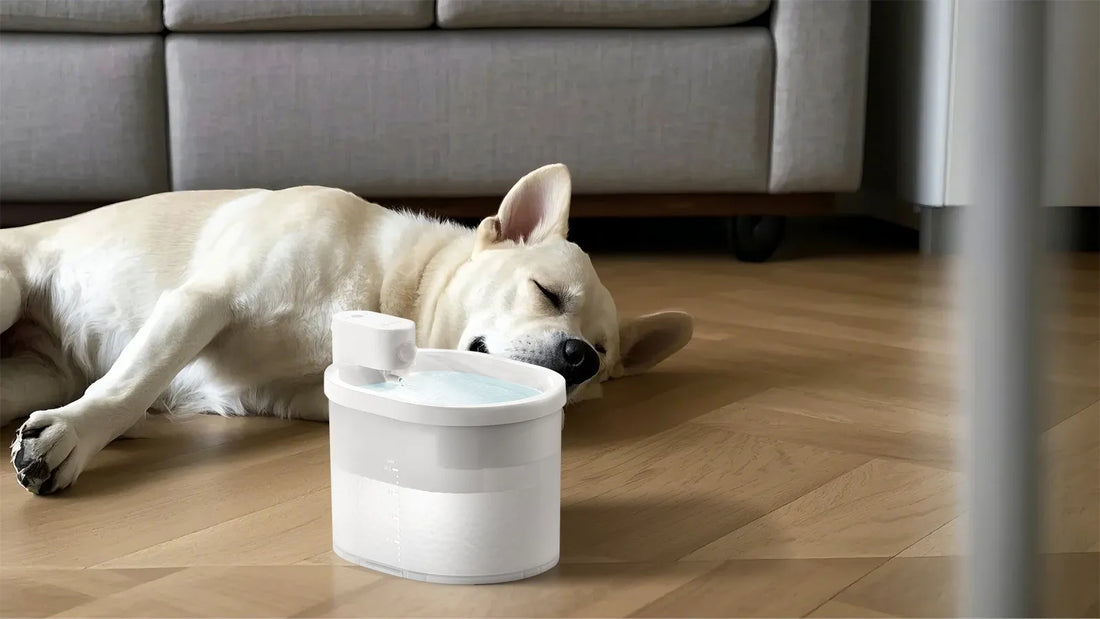If your dog is drinking excessive water and urinating in the house, it can be a cause for concern. This behavior may indicate underlying health issues or environmental factors that need attention. Understanding the root cause is essential to help your furry friend and maintain a clean and comfortable home.
Understanding the Behavior
Dogs, like humans, need water to survive. However, excessive water consumption, known as polydipsia, can be a sign of various health problems. Similarly, frequent urination, or polyuria, often accompanies this behavior. When these two symptoms occur together, it’s important to investigate further.
Common Causes of Excessive Drinking and Urination
Several factors can contribute to your dog drinking excessive water and urinating in the house. Here are some of the most common causes:
1. Medical Conditions
Certain medical conditions can lead to increased thirst and urination. These include:
- Diabetes: This condition affects the body’s ability to regulate blood sugar levels, leading to increased thirst and urination.
- Kidney Disease: Impaired kidney function can cause the body to produce more urine, resulting in frequent urination and increased water intake.
- Cushing’s Disease: This hormonal disorder can cause excessive thirst and urination due to elevated cortisol levels.
- Urinary Tract Infections (UTIs): Infections in the urinary tract can lead to frequent urination and discomfort.
2. Dietary Factors
Your dog’s diet can also play a role in their water consumption and urination habits. High-sodium diets, for example, can increase thirst. Additionally, certain foods or treats may contain ingredients that stimulate urination.
3. Environmental Factors
Changes in your dog’s environment, such as increased temperatures or stress, can lead to excessive drinking and urination. Dogs may drink more water to cool down or as a response to anxiety.
Diagnosing the Issue
If you notice your dog drinking excessive water and urinating in the house, it’s crucial to consult a veterinarian. A thorough examination, including blood tests and urine analysis, can help identify any underlying health issues. Early diagnosis and treatment are key to managing the condition effectively.
Managing Excessive Drinking and Urination
Once the cause of your dog’s behavior has been identified, you can take steps to manage it. Here are some strategies to consider:
1. Medical Treatment
If a medical condition is the cause, your veterinarian may prescribe medication or recommend dietary changes to manage the symptoms. Follow their guidance closely to ensure your dog’s health improves.
2. Adjusting the Diet
Review your dog’s diet and make necessary adjustments. Opt for low-sodium foods and avoid treats that may contribute to excessive thirst or urination. Consult your vet for recommendations on a balanced diet.
3. Providing Adequate Hydration
Ensure your dog has access to fresh water at all times. However, monitor their intake to prevent overhydration. If your dog is drinking excessively, consider offering water in smaller, controlled amounts throughout the day.
4. Creating a Comfortable Environment
Reduce stress and anxiety by creating a comfortable and secure environment for your dog. Provide a quiet space, regular exercise, and mental stimulation to help them feel at ease.
Preventing Accidents in the House
To prevent your dog from urinating in the house, consider the following tips:
1. Regular Potty Breaks
Take your dog outside frequently to give them ample opportunities to relieve themselves. Establish a consistent schedule to reinforce good habits.
2. Using Training Pads
Training pads can be a useful tool for managing accidents indoors. Place them in designated areas and encourage your dog to use them when needed.
3. Positive Reinforcement
Reward your dog for urinating outside or using the training pads. Positive reinforcement can help reinforce desired behaviors and reduce accidents in the house.
When to Seek Professional Help
If your dog’s excessive drinking and urination persist despite your efforts, it’s important to seek professional help. A veterinarian or animal behaviorist can provide additional guidance and support to address the issue effectively.
Addressing your dog’s excessive water consumption and urination in the house requires patience and understanding. By identifying the cause and implementing appropriate strategies, you can help your dog lead a healthier and happier life while maintaining a clean home environment.

![[🎃Halloween Sale]UAHPET Stainless Steel Self-Cleaning Cat Litter Box](http://www.uahpet.com/cdn/shop/files/1-cat-litter-box.jpg?v=1759128420&width=1600)












